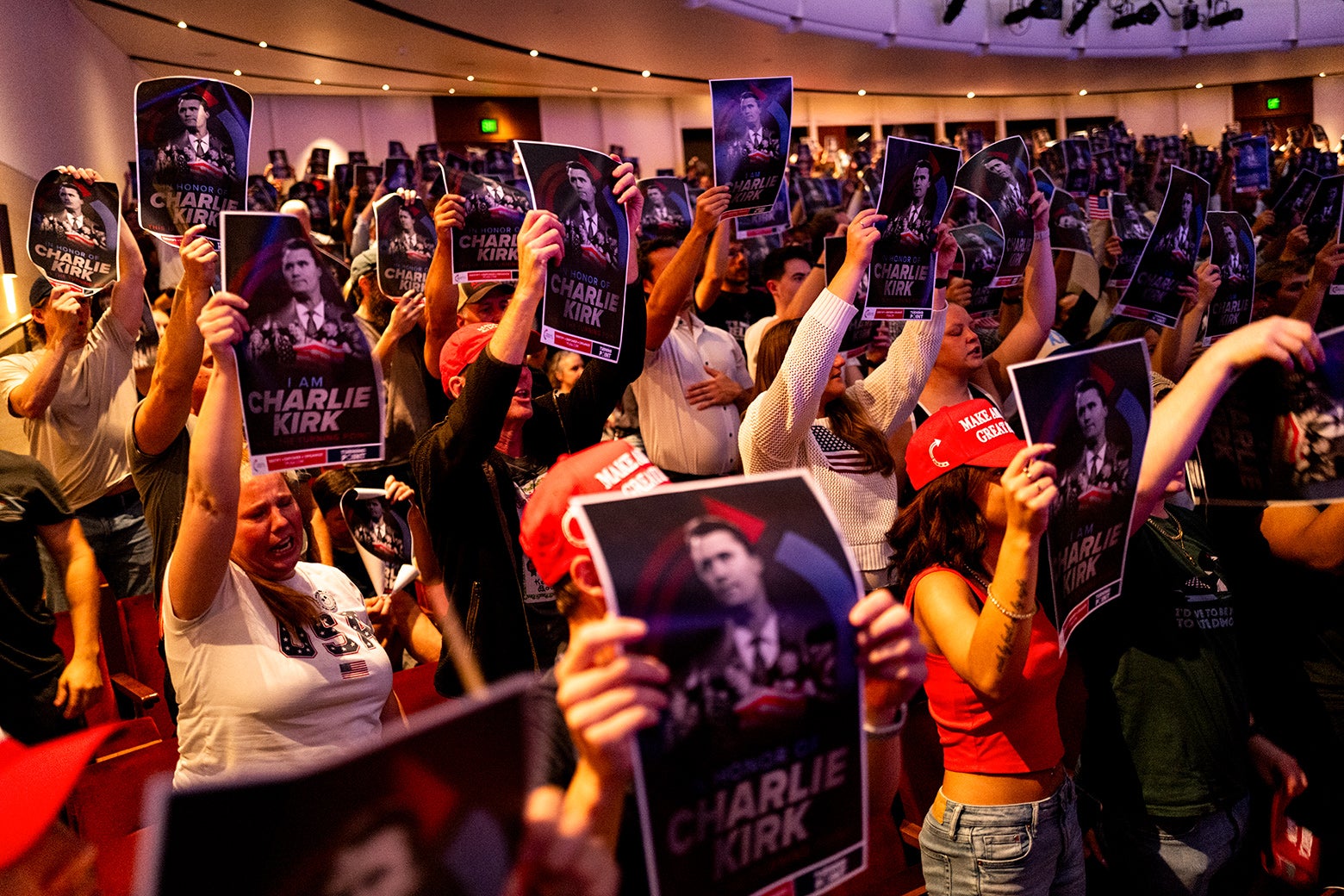
"A century from now, when they write of the two or three pivotal moments that led to the saving of Western civilization, they will write that the sacrifice of Charles James Kirk was the turning point," Jack Posobiec, the right-wing influencer, told the masses at Kirk's memorial. "By returning the people to Almighty God."
"Thousands of people, you've been told, are responding to Charlie Kirk's death by pulling out dusty Bibles or wandering into their nearest churches. Pastors describe packed pews; priests report fielding questions about adult baptism. You can see the evidence yourself: On social media, people are making teary videos professing to have rediscovered Jesus; in the comments, former atheists share stories of finding peace and purpose in prayer."
"But they're not calling it a return, they're calling it a "revival." That was a term that kept popping up during Kirk's memorial rally on Sept. 20. "Charlie started a political movement but unleashed a spiritual revival," Secretary of Defense Pete Hegseth said. "After Charlie's assassination, we didn't see violence," Kirk's wife, Erika, said. "Instead, we saw what my husband always prayed he would see in this country. We saw revival." The White House X account captioned a video from the event "A REVIVAL.""
Charles Kirk's killing is being portrayed by right-wing influencers and leaders as catalyzing a national Christian revival characterized by packed pews, inquiries about adult baptism, and social-media testimonies of renewed faith. Memorial speakers described his death as a sacrificial turning point that returned people to God and emphasized spiritual responses rather than violence. The event was labeled explicitly as a "revival," with public figures and accounts amplifying that message. The term evokes Protestant revival meaning—personal born-again experiences and mass movements in which people report sudden, overpowering connections to God.
Read at Slate Magazine
Unable to calculate read time
Collection
[
|
...
]